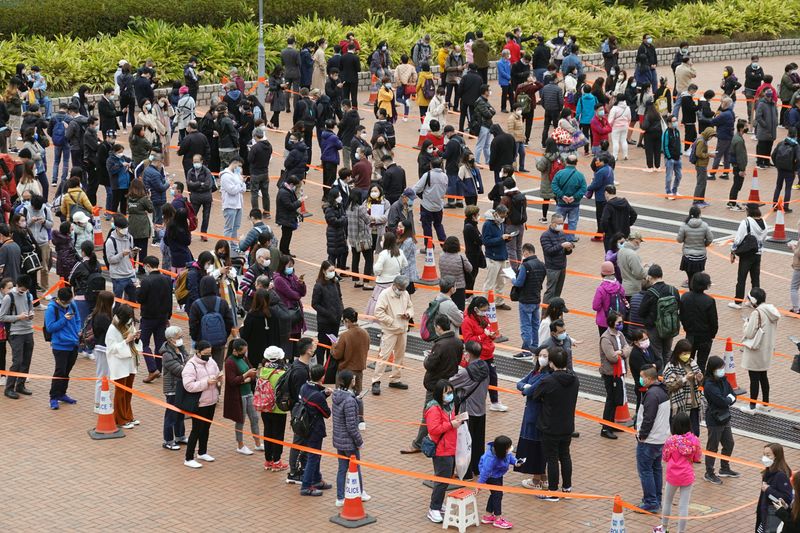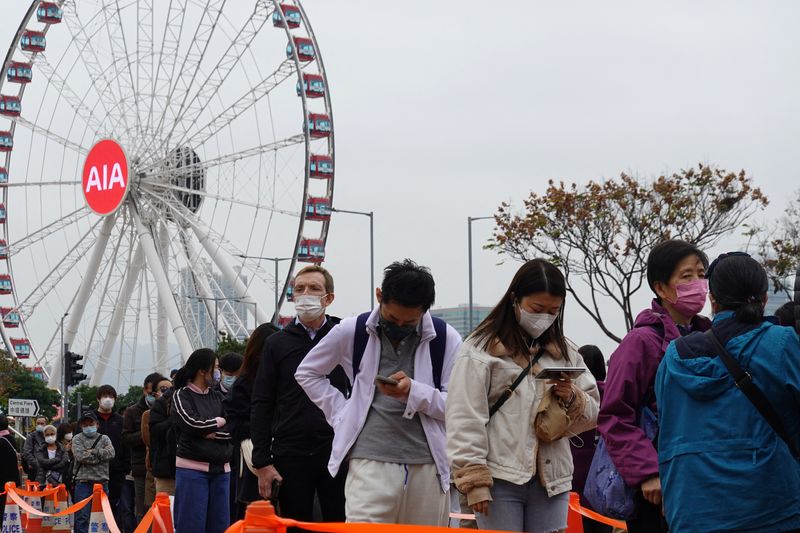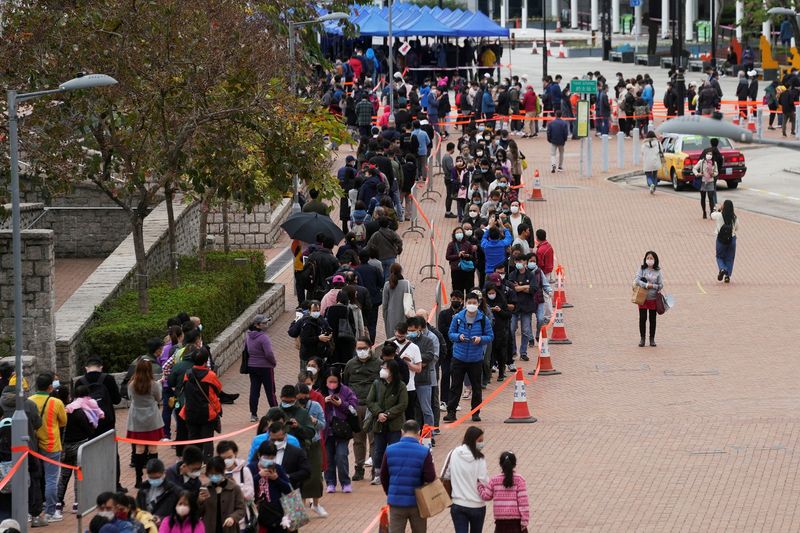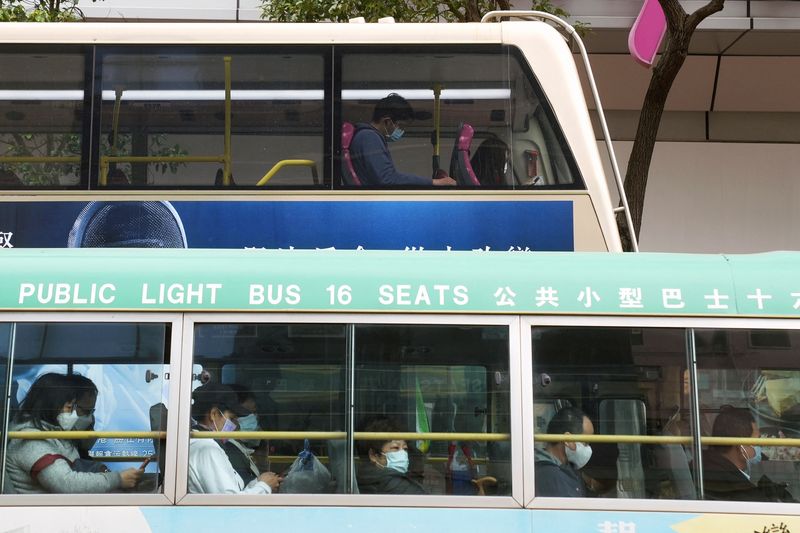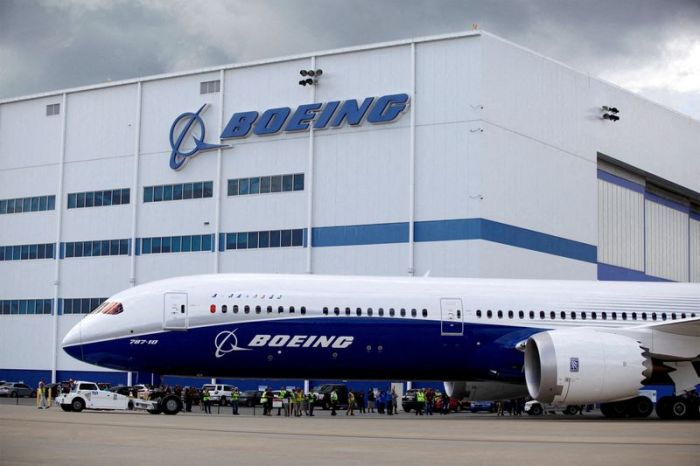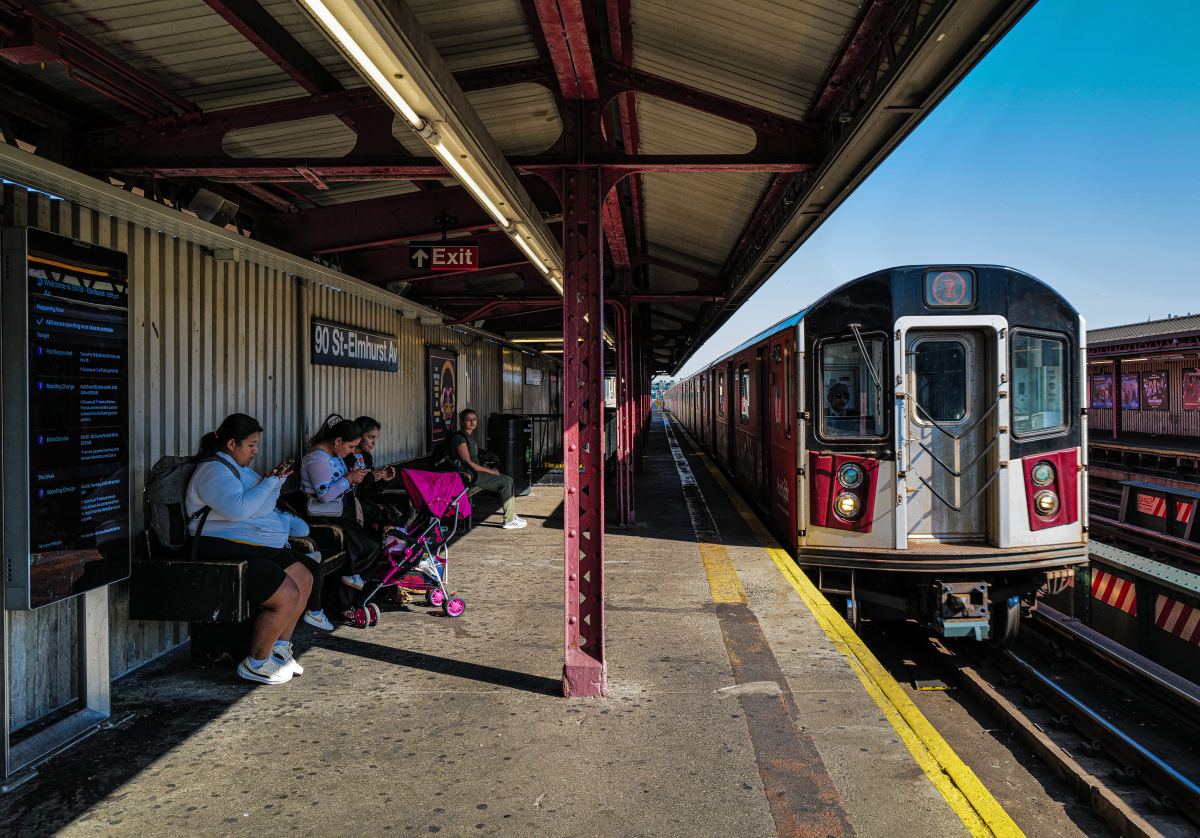By Farah Master and Twinnie Siu
HONG KONG (Reuters) -Hong Kong’s daily COVID-19 infections nearly doubled to a record 1,161 cases on Wednesday, authorities said, as the global financial hub battles a rapid surge that is shaping as the biggest test yet of its ‘dynamic zero’ policy.
The city has reported close to 4,000 infections over the past two weeks, up from just two in December, taking its tally to more than 17,000 since the outbreak began in 2020, with 215 deaths, although the figures are lower than other major cities in the world.
Authorities have responded with the toughest measures since the start of the pandemic, which are taking an increasing social and economic toll on the city’s 7.5 million residents.
City leader Carrie Lam said on Tuesday that public gatherings of more than 2 people would be banned and added churches and hair salons to most venues, including schools and gyms, which have been forced to close.
Many residents rushed to salons for a last haircut ahead of a mandated closure from Thursday.
Hong Kong has stuck to a “dynamic zero” strategy employed by mainland China to suppress all coronavirus outbreaks as soon as possible in order to eliminate the virus.
Lam said the city was not able to try to live with the virus, like most of the rest of the world is doing, because more than 50% of the elderly have not been vaccinated.
About 80% of the city’s residents have had at least one vaccine shot but many elderly people have been hesitant.
Two elderly patients in their 70s died from coronavirus, authorities said on Wednesday.
MASS TESTING
Around 200,000 residents and visitors in Discovery Bay, an area that is home to many expatriates, were ordered to test for COVID-19 after the government said it detected coronavirus in sewage samples.
Typically, thousands of residents are mandated daily to test if they have been to an area where infections are detected.
Among other measures, authorities are implementing a vaccine pass from Feb. 24, which will require proof of vaccination to enter many places, including shopping malls and supermarkets.
Flights are down around 90% because of travel restrictions while most people, including the majority of civil servants, are working from home.
Fitch Ratings said it was revising down the city’s 2022 GDP growth forecast to 1.5% from 3.0% with the “dynamic zero infection” strategy likely to remain until 2023.
(Reporting by Twinnie Siu, Marius Zaharia, Joyce Zhou and Jessie Pang; Writing by Farah Master; Editing by Lincoln Feast, Robert Birsel and Raju Gopalakrishnan)

